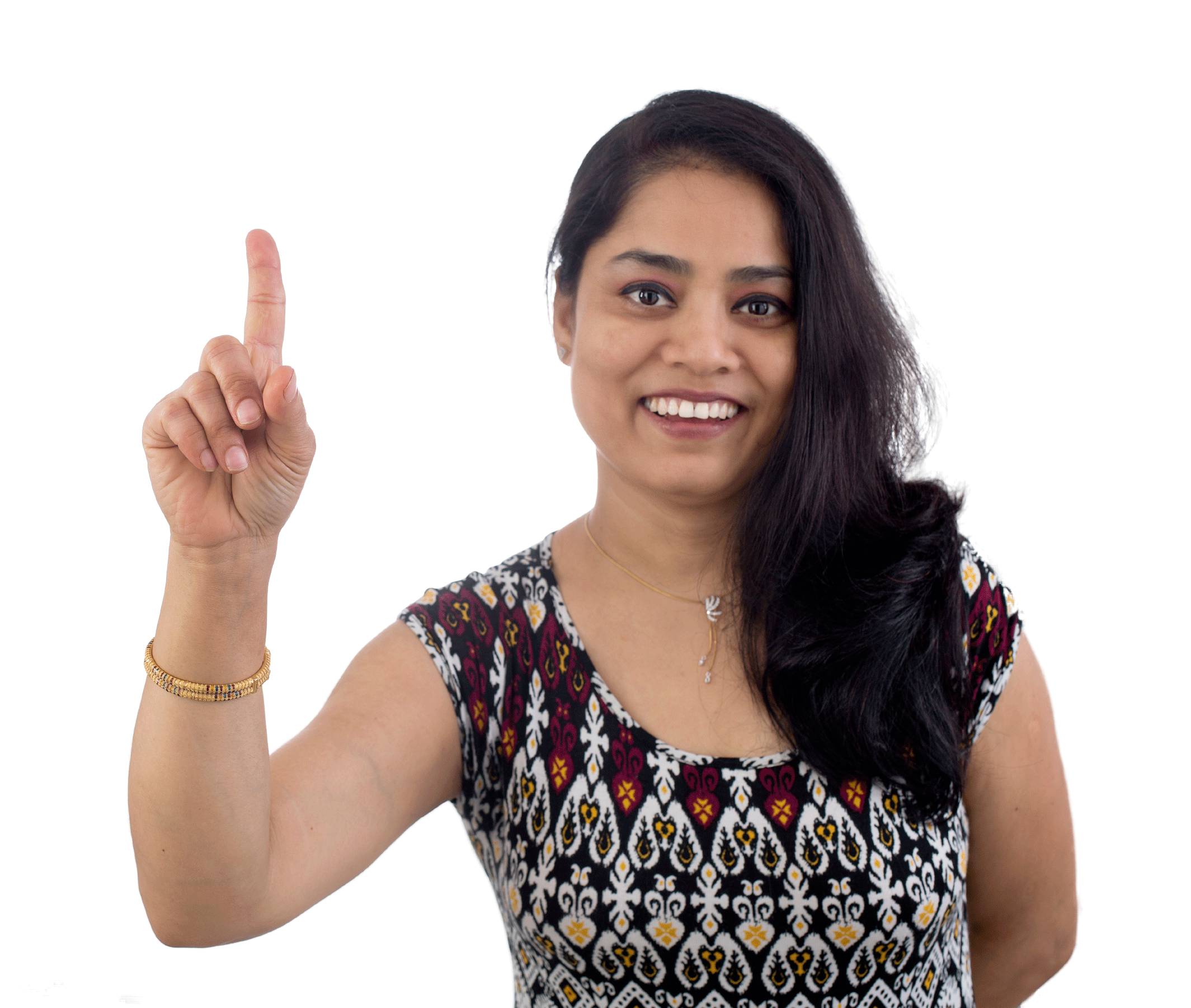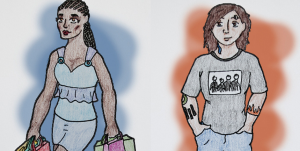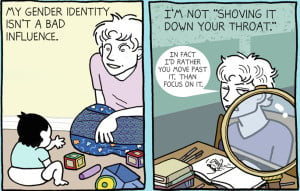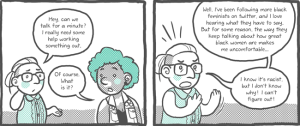
Source: Frahmcomm
When people see me for the first time, my skin color and my height are the first things they notice about me.
I am just about five feet in height and have dark skin.
But unlike my skin color, when I was younger, my height never bothered me. My height never affected my self-esteem or the way I saw myself.
One of my closest girlfriends in high school was about five-foot-seven. The average height of women in India is about 5’2″ or 3″, so she was tall.
I remember that she rarely sat with a straight back and rarely stood or walked around without hunching as if she was ashamed of being a “giant” around other kids, especially around boys.
My barely five-foot height was equally noticeable by people. But to me, my height was what completed my physical form, and it was difficult to imagine myself any other height than what I was.
Although I was almost always the shortest kid in class at school, and although I grew up with people telling me that I was short for my age, I never felt small.
But then I became an adult. And my height became a much bigger deal.
Workplace Realizations
About two months ago, I had a presentation at a large company. As I walked through the lobby with two of my colleagues, I felt like a school-kid.
I was in a pair of black cotton trousers and a black and white patterned blouse. My look was semi-professional, which was appropriate for the presentation. But there was something about myself that seemed off.
And it was my height.
I quickly became intimidated by the thought of facing a room full of people in business suits – not because I was nervous about the presentation, but because I felt like I wouldn’t be taken seriously.
I felt like I wasn’t on par with the other professional-looking people because I am short. I know my height defines the way people see me, especially in a professional environment.
Lately I’ve been observing people at different workplaces, and I’ve noticed that if you look like an adult and if you’re wearing professional clothes, you fit in, at least on the physical level. But that doesn’t seem to be the case for me.
Many people have told me that I don’t look like a 25-year-old. And although I wish to yell back at them, “This is what 25 looks like for me,” I (usually) don’t.
Some part of me feels that maybe their opinions about my height actually do me a favor. It gives me an insight into how people really see my body, and thus how people really see me when they look at me.
I’ve met only a few people in my life who have not said or done something that made me feel that I was physically weak or delicate or child-like. People often tell me that the dating market is going to be difficult for me because men don’t see me as a woman, but as a child.
So, is it possible that when people look at my almost five-feet and thin physique, they don’t see a serious adult?
Gendered Heightism
I’ve often heard that heightism — or discrimination against individuals based on height — is worse for short men than for short women because short men are subjected to the ridicule of not measuring up to standards associated with being a man in our culture.
Almost all of the characteristics that our society associates with being male are about showing power, being assertive, and demanding respect — qualities that popular culture almost always fixes with a tall personality.
Understanding heightism against short men demands critically reviewing societal expectations. It seems justified to call it an issue. Calling out unfair standards? People can get behind that.
But what about the issue of heightism against short women? Does it pack the same punch?
People don’t see heightism against short women as an issue. Even when the societal unfairness is acknowledged, it’s not in a very serious context.
For instance, if you Google “short women,” you’ll find articles about how short women struggle with finding the right size clothes, and whether men prefer tall or short women. Nobody talks about the power struggles faced by short women.
The struggles of short women are rarely acknowledged and often dismissed as a non-issue because characteristics associated with women are not about showing power, being assertive and demanding respect.
Society expects women to be small — quiet, meek, submissive.
Bigger Than Physical
The struggles faced by short women aren’t always obvious. Often they are subtle things like a taller person talking over you and thus, knowingly or unknowingly dismissing your arguments and distracting other people from hearing them.
I’ve been patted on the head and cheek in the workplace – and although some people think it’s a way to build closer relationships, it’s disrespectful and completely uncalled for.
These are gestures we use when interacting with children. When I am being treated as a child, it becomes very difficult for me to be taken seriously and to state my arguments and ideas as something worth paying attention to.
In situations like these, I’ve often ended up behaving the way I am being treated. I start to play small, I start acting like a child with nothing serious to offer, and I start looking for advices and mentors for things I am otherwise capable of handling.
When people treat me like a child, I become one.
When people don’t take me seriously, I stop taking myself seriously.
But now I’m learning to be conscious of these things. I am learning to make different choices that help me feel good about myself. I’m learning to decide how I let people treat me.
I’m Entitled to Take Up Space, Too
How our bodies are perceived by the world — or perhaps, how other bodies are celebrated — often influences the things that we internalize.
A very recent life-changing realization in this context has been choosing how I walk down the street.
I spent some time with a tall friend of mine and noticed the way he always walked with a straight back, always walking as if he owned the road — and I realized what I was missing out on. I was missing out on free space.
Most of the time when I’m walking down the street, I squeeze myself in a crowd, settle for less space on the sidewalks or on the public transport, hunch and contract my body to offer more space to others.
I realized a major reason why I did all this had to do with a subconscious acceptance of the idea that because I am short, I do not deserve much space.
I remember one time when several of my friends were all crowded in one car together, and they asked me to sit on another friend’s lap to make more room in the car. Because I was the smallest, I was expected to adjust more so that others could be more comfortable.
Watching my tall friend walk on the road as if he owned it made me realize that I am free to walk like that too.
I don’t have to be tall. Being tall isn’t the ticket to claiming space. I realized how much I love walking and claiming my own space. I just had to be confident and believe that I deserve space.
Being True to Myself — Height and All
Luckily and proudly, I did do a few things that I believe were in complete alignment with how I wanted to feel about myself.
I’ve never worn heels to a job interview. I don’t give a second thought to “what men like.” And I managed to ignore the people who told me I was too delicate to run and recently beat my own personal record for running distance.
I don’t want to reinforce people’s idea of a serious professional, and that’s why I don’t wish to dress in a way that would make me look tall and professional. I want to be short and professional. I want to be short and serious.
All said, there is a part of me that loves being a child, which expresses itself in a child-like manner around people I trust. That part is as authentic and as important to my overall personality and emotional well-being as having an adult self.
At present, I am lucky to be working in a place where I can be child-like every now and then around my boss, and also be taken seriously by her about my work, my ideas, and most importantly, my abilities.
I find joy in this dance between being a child that jumps around different places and being an adult that claims a space for herself.
***
I’ve found out that so much freedom rushes in your direction when you take up space – on the road, at office, in the world.
So don’t play small. Sit with a straight back. Walk as if you own the road. And speak so loud that people can already feel your amazing ideas turn into reality. Take up space.
And if you would like to know how my presentation at that company went — all five feet of me rocked it.
[do_widget id=”text-101″]
R. Nithya lives is a Contributing Writer for Everyday Feminism and lives in New Delhi, India. She has a Bachelor’s in Journalism and a Master’s in Political Science and has worked as a reporter with an online political news and analysis magazine. Read her articles here. Visit her here or follow her on Twitter @rnithya26.
Search our 3000+ articles!
Read our articles about:
Our online racial justice training
Used by hundreds of universities, non-profits, and businesses.
Click to learn more
Most Read Articles
- « Previous
- 1
- …
- 30
- 31
- 32



















